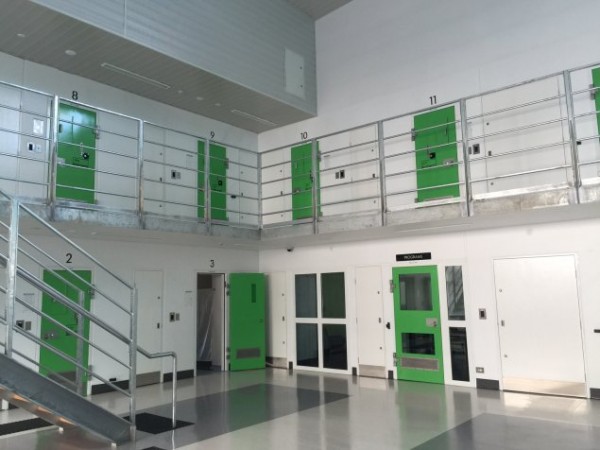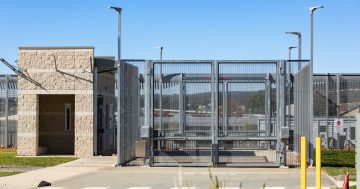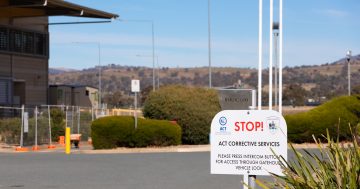
Prisoners say the Alexander Maconochie Centre fails to meet their basic human rights. Photo: File.
Prisoners have painted a depressing picture of life inside Canberra’s Alexander Maconochie Centre (AMC), saying current conditions are contributing to psychological hardship, promoting the spread of disease and infection, and fostering animosity towards prison staff.
One inmate, describing the bleakness of life inside the prison, said protests were likely to escalate before any meaningful change takes place.
“My main concern is that if things do not change, inmates are likely to escalate the severity of their protests and people will die,” the prisoner said.
“There is already talk of this being required if any meaningful change is to be prompted. The goal of the [recent unrest at AMC] is to make someone pay attention.”
Inmates say restrictions on prisoners are “imposing additional punishments beyond the deprivation of liberty” and prevents them from reducing boredom.
“When I think of being ‘bored’, I think of having to endure a long flight or a particularly dry university lecture,” he said. “The bleak nothingness of imprisonment, especially at the AMC … [is] genuine psychological hardship, damaging to those who experience it.
“A few days sitting in a cell or the unit cage is boring, a few weeks is straining. When it becomes months or years, with no end in sight and no reason for this to be occurring beyond the punitive ideologies of AMC management, it becomes something much more.”
Prisoners also alleging insufficient food, a prohibition on everyday items and extortionate prices on items they can buy.
A document sent to AMC management by a delegate for the prisoners, dated April this year, stated that current property restrictions expose “inmates to periods of prolonged monotony and psychological hardship”.
Shared hair clippers and boxing gloves promoted the spread of disease and infection while bans on music and game consoles increased demand for drugs and other contraband, it claimed.
“Inmates at AMC cannot purchase or legally acquire items such as hair clippers, CD players or CDs, DVDs, sporting equipment, shoes, games consoles, and a range of other everyday items available in many other jurisdictions.
“The prohibition on everyday items that serve to reduce the pains of imprisonment does not comply with human rights legislation, human rights principles, or ACT standards for corrections.”
A Justice and Community Services Directorate (JACS) spokesperson said detainees have access to 51 open source games via the Prison PC system in cells as well as DVDs they can watch in their cells.
“All detainees receive a minimum of one hour time out of cells; however, ACT Corrective Services (ACTCS) strives to provide detainees with up to 9.5 hours out of cells each day [but] the target is often impacted by the large number of detainee cohorts within the AMC who are not able to mix openly together, [and] COVID-19.”
But when complaints are made through official channels they are often to no avail, the prisoner said.
The ACT Human Rights Commission (HRC) does not have the jurisdiction to handle human rights complaints or to receive and deal with complaints about human rights breaches by government agencies, ACT Human Rights Commissioner Dr Helen Watchirs confirmed.
The ACT Ombudsman only considers complaints that breach AMC policy and the Office of Inspector of Correctional Services does not consider prisoner complaints.
Detainees must launch legal actions which the Human Rights Commissioner can seek leave to intervene in.
Dr Watchirs said she is currently intervening in a complaint regarding prisoners’ access to a minimum one-hour of fresh air and exercise daily.
A JACS spokesperson said that the HRC has oversight of the prison and that “ACTCS policies and procedures align with the Human Rights Act 2004“.
An ACT Government spokesperson said prisoners are also able to make complaints to Official Prison Visitors who operate independently from the Directorate.
“Official Visitors provide a report on complaints received and systemic issues identified on a quarterly basis and recommendations are acted upon to ensure that services meet the needs and human rights of vulnerable people,” they said.
A review released last year by the ACT Inspector of Correctional Services found that more needs to be done to address key issues relating to safety, respect and dignity, purposeful activity, and rehabilitation and preparation for release.




















